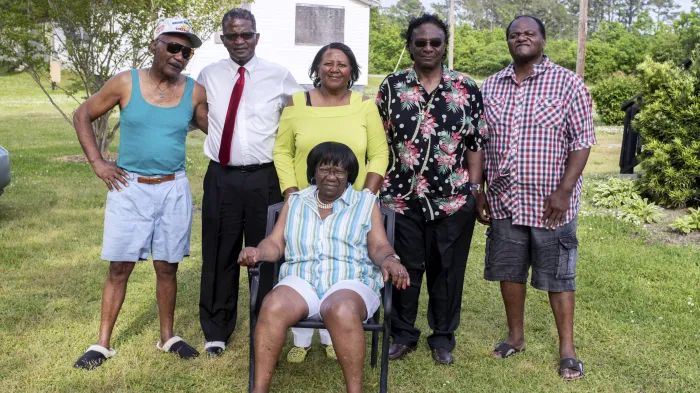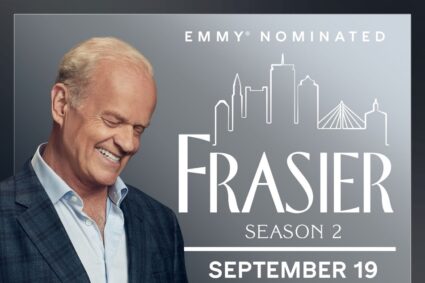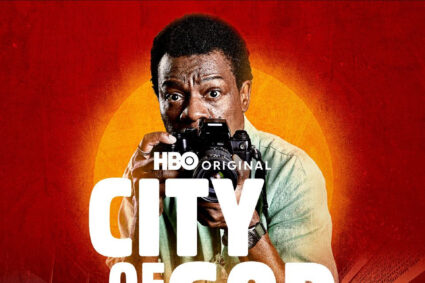
On today’s INTERVUE, we get to explore one’s family journey as their waterfront property was taken away by land developers in the documentary, Silver Dollar Road, releasing this Friday on Prime Video.
For generations, a waterfront property in North Carolina, known as Silver Dollar Road, is passed through generations in the Reels Family. Developers seek out the land, and begin to harass the family, leading the Reels to battle to save their land. The film draws upon reporting by Lizzie Presser for ProPublica.
Discussing the documentary with today is writer/producer/director of the docmentary, Raoul Peck.
So my first question to you is, how did this documentary came to be and when did you first learn about the Reels family?
Well, it started with an incredible article written by Lizzie Presser of ProPublica, who went down there and made an incredible research. She talked not only to that particular family, the Reel family but also to scholars to real estate people to universities. And she really put out a credible and dramatic situation, not only in the south, by the way, but in many parts of this country. And ProPublica and Amazon contacted me to see how we could produce a film around a documentary around the story.
Talk to me about meeting the Reels for the very first time. I understand you met them through Gertrude Reel on their on her 94th birthday. Is that correct?
95th birthday. Yes, and the whole family was there many people came from different parts of the country to celebrate those 95 years of her, you know, leaving on that property? That’s the thing. And Gertrude, you know, her father and her grandfather, great grandfather live on that property. So it was a very emotional moment. I think that’s when I knew that that story needed to be told.
Absolutely, especially since the film delve into the impact of an unjust legal system, and the lives that it took on the Reel family. Why do you feel we have to tell that narrative, especially with what’s going on, and that we got to learn about heirs property?
Well, I think it’s the key, and it’s fundamental. I think every one of us are linked to a certain way to a land to a piece of land. And once you lose that, you have no boundary, you have no linked to anything, you just another object floating around. People sometimes they forget their own history, and that particular story resonate. I’ve seen it through different audiences, because they all have a similar story because we all come from somewhere. And the fact that that link was cut off.
And most of the time dramatically, I met people who said, watching the film that, in fact, they forgot that their grand grandfather had land, they forgot the trauma, to have left that that land. And so, land is much more than just property, it’s also identity. It tells you who you are. And I remind you that most of the founding fathers were real statement, you know, and that land was bad because they stole it mostly from the people who were there before everybody else. So it’s really an integral part of what this country is, we of course, now people in cities, fact that they are central to the life of this country, but it’s the land.
What do you hope that people learn from “Silver Dollar Road” and the topic of black land loss, especially since we learned about the Reels and how the great, great grandfather purchased land back in 1911, only to be taken over by a corporation over 60 years later?
I do hope that black families in particular but also white families and also middle class families. I’ve heard so many different stories of how the existing laws allows people to take advantage, especially when you do not know your rights. Another aspect is what we call “house property”, that means people who have not written the will, people who would thought, ” I’m not going to declare anything, because they don’t need to know my business”. A lot of people don’t trust the justice system even today.
So, but by not doing the right thing, they fractionalize their property. They fractionalize whatever papers they have that justify the property. I hope the film will encourage people to look into that to make sure that their land is secure. There are a lot of organizations out there doing just that. There are a lot of pro bono work, lawyers, associations, doing just that to help black, indigenous, poor white families to make sure that the little piece of land that they have will not be grabbed by promoters or people who wants to build a vacation home for billionaires.
My last question is this. Did exploring the legal complexities shape or change your perception of the systematic challenges that was faced by the Reel family?
Well, personally, it didn’t brought me any new specifics. I knew that the system as such, have always been rigged against people who could not defend themselves. People who didn’t have the keys, or the sometimes the vocabulary to defend themselves. I learned the specifics of that case, in terms of laws like last call, petition association, torrents act, heirs properties. Some of them were voted to help people rearrange the title, but in fact, they have been used by people who knew better, to in fact, still continue to steal people’s land. So yes, there are a lot of those legal terms that I didn’t know exist and I was flabbergasted to see how they were basically used against the people that were supposed to help.
Silver Dollar Road – coming to PRIME VIDEO FRIDAY October 20th



